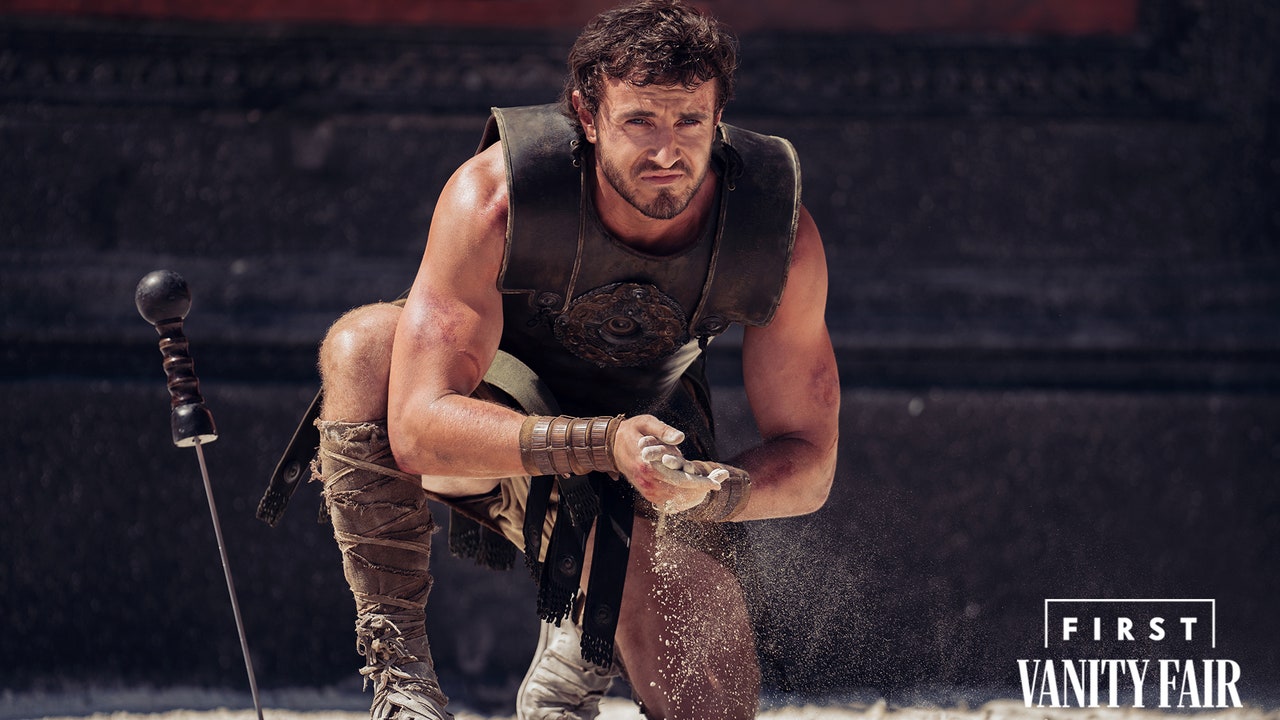Both men made their trade in brutality, but while Crowe’s warrior was a master of control, Pascal says his character is someone who finds himself carried away by circumstance. “I think that a lot happens before you can stop and question what you’ve done. And then of course there’s no changing it,” he says. “He’s a very, very good general, which can mean a very good killer.” To Lucius, Acacius is a symbol of everything he detests. “The film begins with the raiding party of the Roman fleet, which comes in from the sea and decimates Numidia,” Scott says. “It’s pretty gnarly.”
Lucius, once the grandson of the emperor of Rome, finds himself a prisoner of it. “When you’re a POW in Rome, if you are damaged, you are killed. If you are fit, you’ll get put into some kind of service, as in slavery, or you would go into the arena to die,” the director says. That leads to a twist the filmmaker is willing to reveal now: “The wrinkle is, when he gets to Rome as a prisoner and has a first round in the arena, he sees his mother—to his shock. He doesn’t know whether she’s alive or not. How would he know? You don’t have telephones. There’s no press. And there’s his mother in the royal box looking pretty good after 20 years. And she’s with the general who he came face-to-face with on the wall in Numidia.”
Lucilla doesn’t recognize the battered creature in the Colosseum as her son, and has no idea about the bloody history between him and the man she loves. “She’s a woman who has had a huge loss, and in the middle of that, a gift that is Pedro Pascal,” Nielsen says. “What a gift that guy is. Even to play with, to work with, I just absolutely love him, and he’s so perfect for this role. He is one of those rare actors who really has heart, soul, and at the same time this incredible gift of transformation.”






